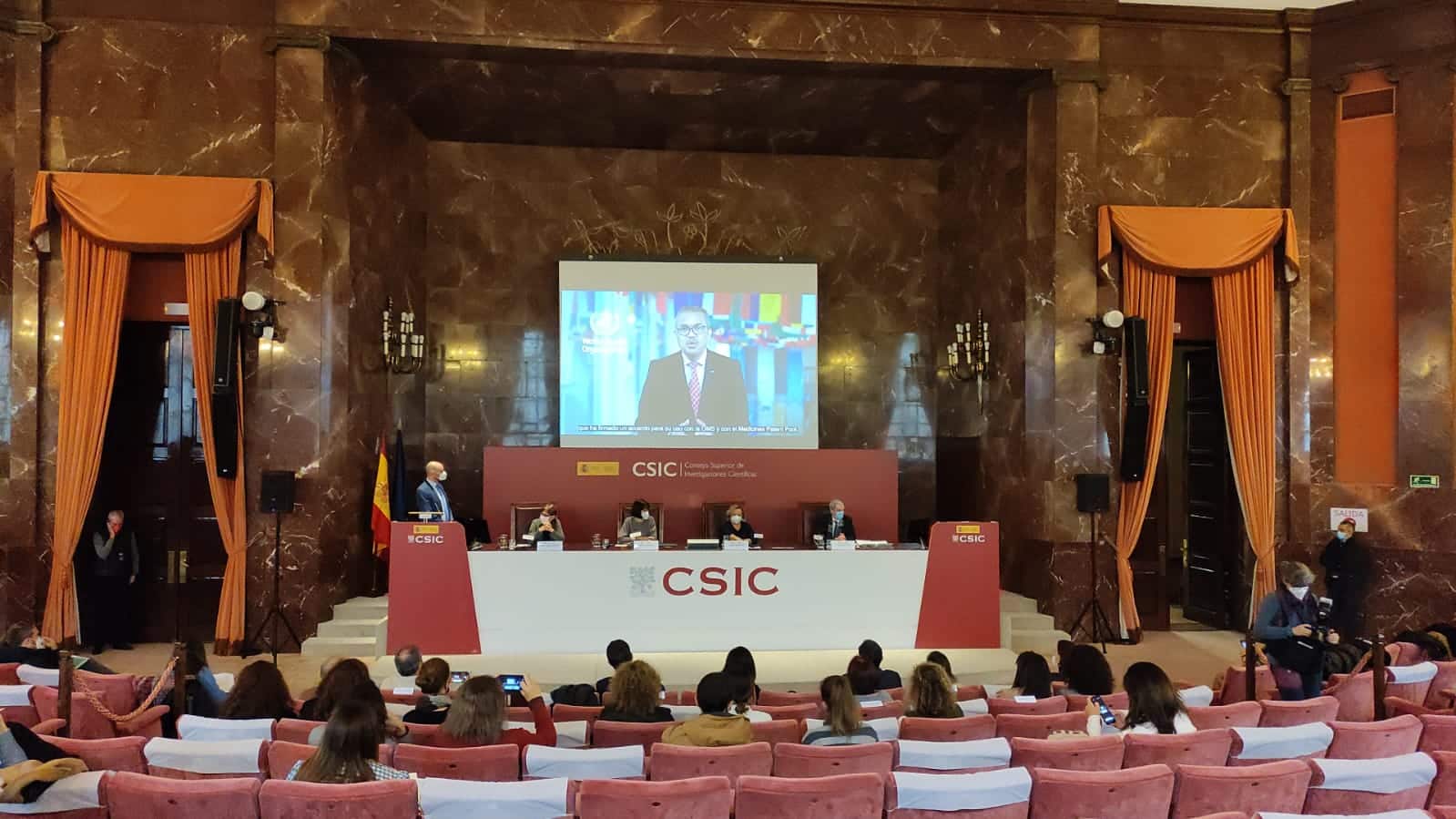The Spanish National Research Council (CSIC) and the Medicines Patent Pool (MPP) today announced the signing of a licensing agreement for the CSIC-developed “ELISA” serological antibody test.
As announced by the two institutions at an event today, this agreement represents the first transparent, global, non-exclusive licence for a Covid-19 test that will allow manufacturers with capacity anywhere in the world to develop these diagnostic tests, royalty-free, in low- and middle-income countries.
This is very significant because ELISA tests offer a high level (99%) of effectiveness in detecting SARS-CoV-2 antibodies that have been developed in response to the Covid-19 virus. Furthermore, they are easy to use and are adaptable to all settings and can be used under basic laboratory infrastructure conditions such as those found in rural areas of low- and middle-income countries.
“The agreement reached between the CSIC and the MPP is very good news. Firstly, because Spain is part of an initiative that seeks to share knowledge and support open science. And secondly, because joining C-TAP (the Covid-19 technology pool coordinated by WHO) will increase production of this test in low- and middle-income countries, thus ending their dependence and boosting their health systems,” says Vanessa López, director of Salud por Derecho.
At Salud por Derecho, we are confident that this is only the first of many technologies to tackle Covid-19 that will be added to the C-TAP programme. The CSIC is doing extraordinary work, including in terms of vaccines and medicines, which could be incorporated under this agreement as they are developed.
“It is very important that we take a global approach to addressing the issue of lack of access to vaccines, medicines and other tools to tackle Covid-19, in the way that C-TAP does, if we want to reduce the glaring inequalities we are witnessing,” warns Vanessa López.
As we, at Salud por Derecho, have been championing for years, drugs, vaccines and other health technologies developed with public investment should be considered public assets and be made available to any manufacturer, instead of allowing large companies to have a monopoly over products that we have all helped to finance. The CSIC should serve as an example for other countries and companies.
“The agreement reached today demonstrates that it is possible to push forward new alternative medicine research and development models, under which we are committed to sharing knowledge and ensuring global access to products, without intellectual property being a barrier,” López concludes.
Watch the full presentation event here.












